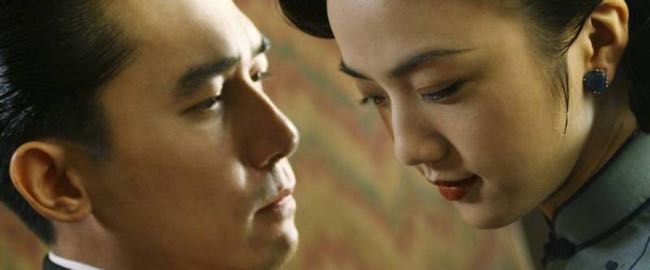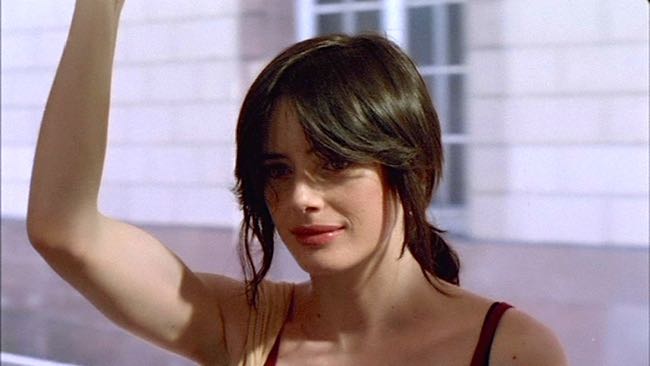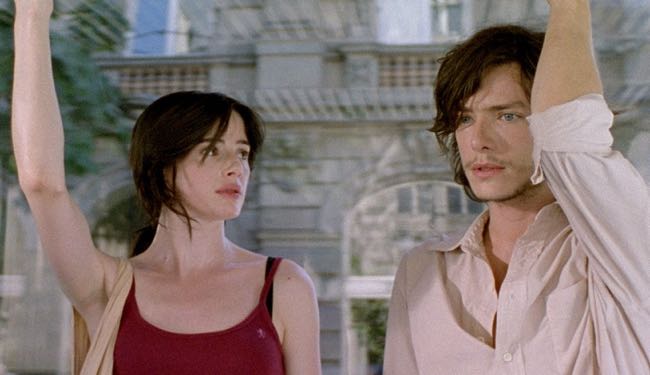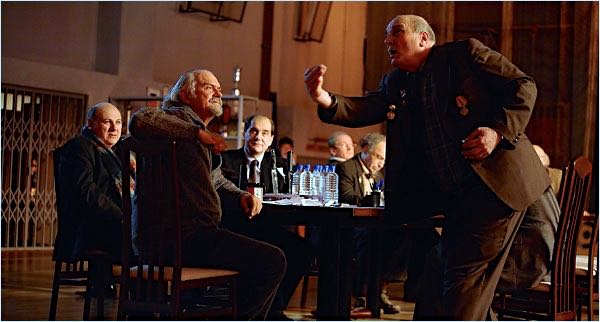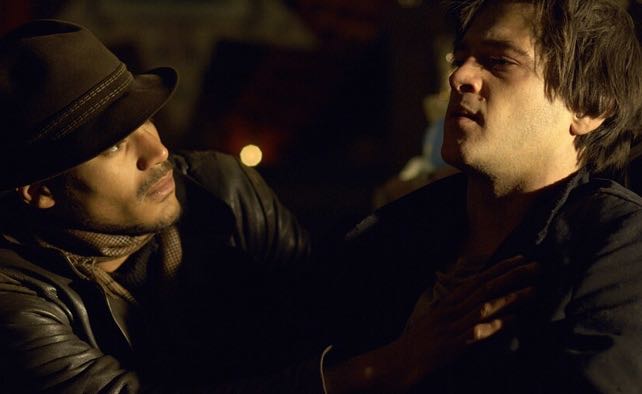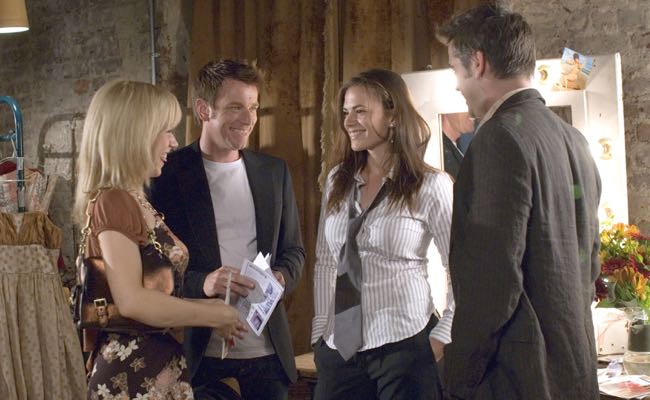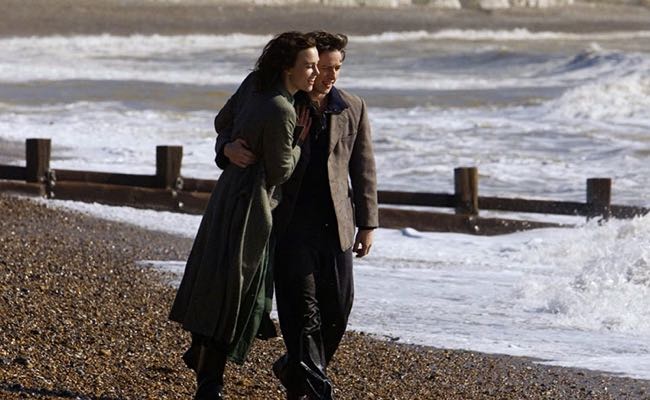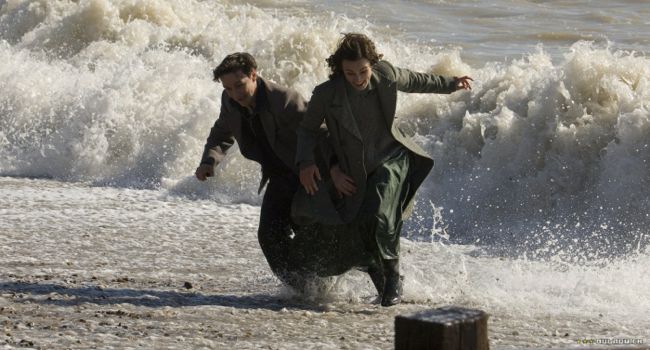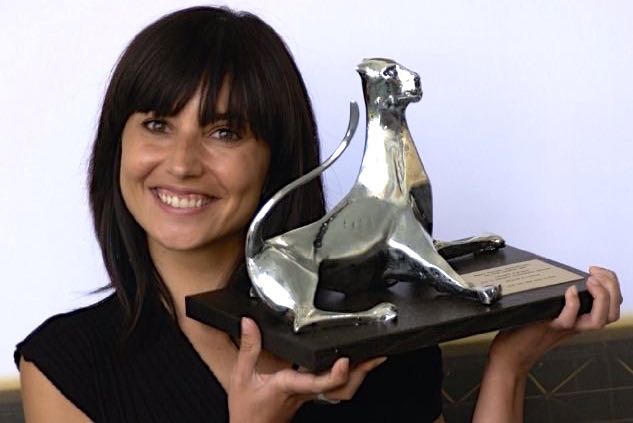By Ray Bennett
VENICE – Ang Lee’s lugubrious spy epic “Lust, Caution” (Se jie) brings to mind what soldiers say about war: that it’s long periods of boredom relieved by moments of extremely heightened excitement.
There’s an extended and nasty murder scene in which several inept resistance fighters make a bloody mess of stabbing a man to death and a series of sex scenes so close to the knuckle and more lubricious joints as to appear real. No wonder the MPAA has slapped an NC-17 rating on the picture, which screened in competition at the Venice International Film Festival.
But getting to those episodes, which are of dubious merit, means enduring 156 tedious minutes watching a group of not very interesting young Chinese people learn how to fight the occupying Japanese during WWII. Needlessly long and filled with albeit beautifully staged and filmed sequences where not very much happens, the film is unlikely to capture the word of mouth buzz required to overcome the handicap of its rating.
The plot is much like “Black Book,” Dutch director Paul Verhoeven’s tale of a young Jewish woman who sleeps with a Nazi on behalf of the resistance, although it has none of the flair of that film. In “Lust, Caution,” it’s an idealistic young Chinese woman named Chih-ying Chu (Tang Wei) who volunteers to become the mistress of Mr. Yee (Tony Yeung), a traitor who runs the brutal secret service on behalf of the hated occupying force.
The idea is that if she intrigues him enough he will breach his supercautious regimen and place himself at risk so the others in Chih-ying’s group can assassinate him. Kuang Yu-Min (Wang Lee-Horn), who heads the group, is handsome and noble, and also attracted to the girl although he reveals that about three years too late.
Starting off as a theatrical troupe producing patriotic plays, they graduate to armed activity as part of a cell run by the organized resistance. They’re just not very good at it. Chih-ying, however, having demonstrated onstage that she’s a superb actress, takes to subterfuge like a natural-born Mata Hari.
With her shy beauty and pleasant manners, she is invited to join the mahjong circle of Mrs. Yee (Joan Chen) among the Chinese elite permitted to enjoy a privileged life by the Japanese. They are ladies who lunch and talk about the luxuries that they miss but are sometimes available from Hong Kong.
Chih-ying soon catches the eye of Mr. Yee and before long becomes his mistress. That’s when she starts really earning her resistance pay. Mr. Yee is a brutal rapist and their sexual encounters become sado-masochistic episodes in which the man shows a glimmer of humanity only at the point of sating his lust.
There’s a fair bit of that and it is well choreographed with lots of flesh on display although entirely devoid of passion. The film looks gorgeous but the plotting is clumsy and the acting is flat. It takes a long time before the idea of killing Mr. Yee gets going and by then it appears that director Lee has lost the plot and his laborious tale appears to have no point at all.
Venice International Film Festival In Competion
Cast: Tony Leung; Joan Chen; Tang Wei; Wang Lee-Horn; Anupam Kher; Director: Ang Lee; Screenwriters: James Schamus, Hui-Ling Wang, from a story by Eileen Chang; Director of photography: Rodrigo Prieto; Production designer: Pan Lei; Music: Alexandre Desplat; Costumes: Lai Pan; Editor: Tim Squyres; Producers: William Kong, Ang Lee; Executive producer: James Schamus; Production: Focus Features, River Road Entertainment in association with Haishang Films; Running time, 156 minutes; MPAA rating: NC-17

